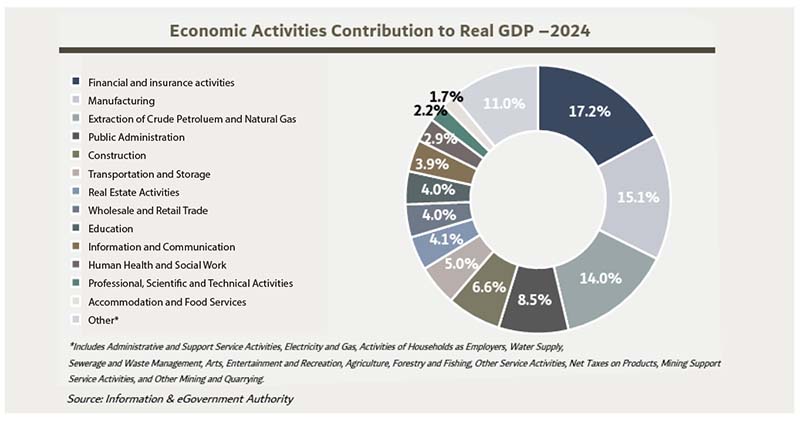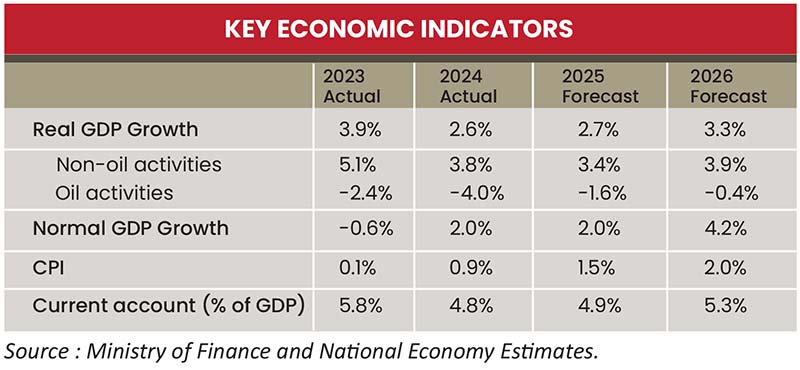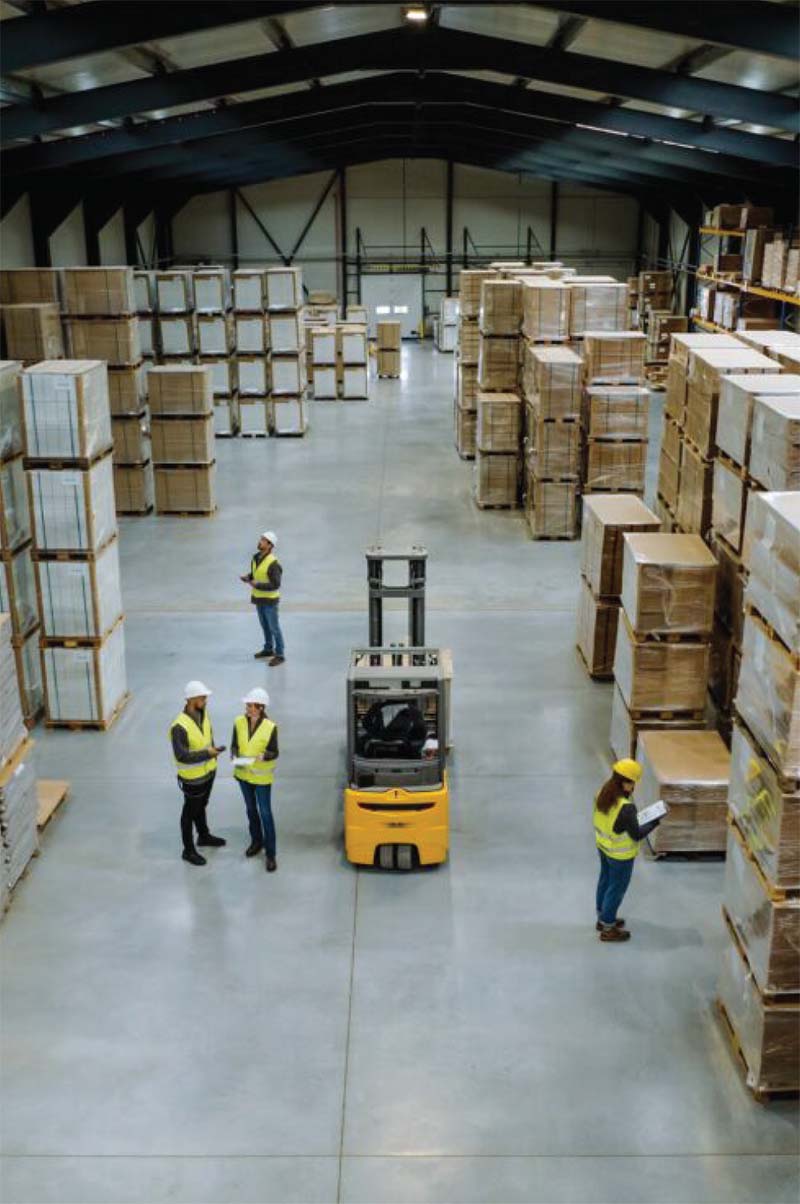
The Kingdom of Bahrain has long positioned itself as a forward-looking hub in the Gulf region, leveraging its strategic location, strong financial sector and progressive policies. As of Q3 2024, the country’s economy continues to show resilience and adaptability, with steady contributions from a variety of sectors.
According to recent data from the Information & eGovernment Authority, financial and insurance activities lead economic contribution at 17.2%, followed by manufacturing at 15.10% and crude petroleum and natural gas extraction at 14%. Other notable contributors include public administration, real estate and construction—each playing a key role in sustaining economic momentum. Transportation and Storage Activities grew by 4.9% YoY. In 2024, aircraft movements increased by 8.4% YoY, with a total of 101,534 recorded flights. Meanwhile, movements via sea saw containers handled at Khalifa Bin Salman Port increase by 1.3%, reaching a total of 409,382 containers compared to 404,236 in 2023.
 This economic diversification is reflected in Bahrain’s key economic indicators.
This economic diversification is reflected in Bahrain’s key economic indicators.
 The real GDP growth forecast for 2024 stands at 2.6%, with projections for a stronger 3.3% growth in 2026. Notably, this growth is primarily driven by non-oil activities, which are forecast to rise by 3.9% in 2026, while oil-related activities are expected to contract slightly. The Consumer Price Index (CPI) remains moderate at 2.0% forecast for 2026, signaling manageable inflation levels. Meanwhile, the current account balance is expected to improve to 5.3% of GDP, supporting overall economic stability. Bahrain’s moderate yet consistent economic growth highlights the importance of continued reform, fiscal discipline and economic diversification. While financial services and manufacturing remains key drivers, sectors like logistics, healthcare, education and ICT are playing increasingly important roles.
The real GDP growth forecast for 2024 stands at 2.6%, with projections for a stronger 3.3% growth in 2026. Notably, this growth is primarily driven by non-oil activities, which are forecast to rise by 3.9% in 2026, while oil-related activities are expected to contract slightly. The Consumer Price Index (CPI) remains moderate at 2.0% forecast for 2026, signaling manageable inflation levels. Meanwhile, the current account balance is expected to improve to 5.3% of GDP, supporting overall economic stability. Bahrain’s moderate yet consistent economic growth highlights the importance of continued reform, fiscal discipline and economic diversification. While financial services and manufacturing remains key drivers, sectors like logistics, healthcare, education and ICT are playing increasingly important roles.
 BUILDING STRONGER TEAMS – THE BACKBONE OF ORGANIZATIONAL GROWTH
BUILDING STRONGER TEAMS – THE BACKBONE OF ORGANIZATIONAL GROWTH
In a business landscape shaped by digital disruption, global collaboration and rising customer expectations, effective team management is more important than ever. A productive team doesn’t just meet deadlines—it innovates, adapts and drives the company forward.
Clear and open communication, paired with active listening, lays the foundation for strong team collaboration. It’s also essential for teams to operate with a growth mindset—for both personal development and overall company progress.
Setting clear goals and tracking performance helps teams stay focused and ensures accountability. It provides direction and measurable outcomes, keeping everyone aligned with the bigger picture.
Leadership that inspires and motivates is essential for team success. Great leaders don’t just direct—they guide, support and energize their team members. They also bring empathy into the equation, showing genuine care and understanding for their team’s well-being.
Adaptability is another cornerstone-teams that can adjust quickly to changing circumstances are more likely to thrive in a dynamic business environment.
Ultimately, effective team management not only boosts productivity but also builds a culture of collaboration and resilience. It’s a fundamental ingredient for organizational success.
NETWORKING – A CATALYST FOR BUSINESS EXPANSION
Whether it’s a casual chat over coffee or a formal introduction at a global conference, networking remains one of the most powerful tools for business success. It’s not just about exchanging business cards—it’s about building relationships that can shape your company’s future.
These interactions help build trust and open doors to opportunities that may not have existed otherwise.
At CSS, networking isn’t just a business activity—it’s the foundation upon which we’ve built our company. For over 30 years, we’ve collaborated with individuals and companies across the logistics and supply chain ecosystem. Our partnerships with networks such as Project Logistics Alliance (PLA), Global Project Logistics Network (GPLN) and Airfreight Logistics Network for Africa (ALNA) reflect our deep commitment to connectivity and collaboration.
The Logistics Roundtable 2025 in the UAE has opened a plethora of opportunities. This was a chance for us to connect with global partners, explore new ventures and strengthen the relationships that have supported our growth over the past three decades.
The future belongs to those who are prepared, proactive and people-focused. As CSS marks 30 years of excellence, we look forward to embracing new opportunities, strengthening our global presence and driving impact through collaboration and innovation.